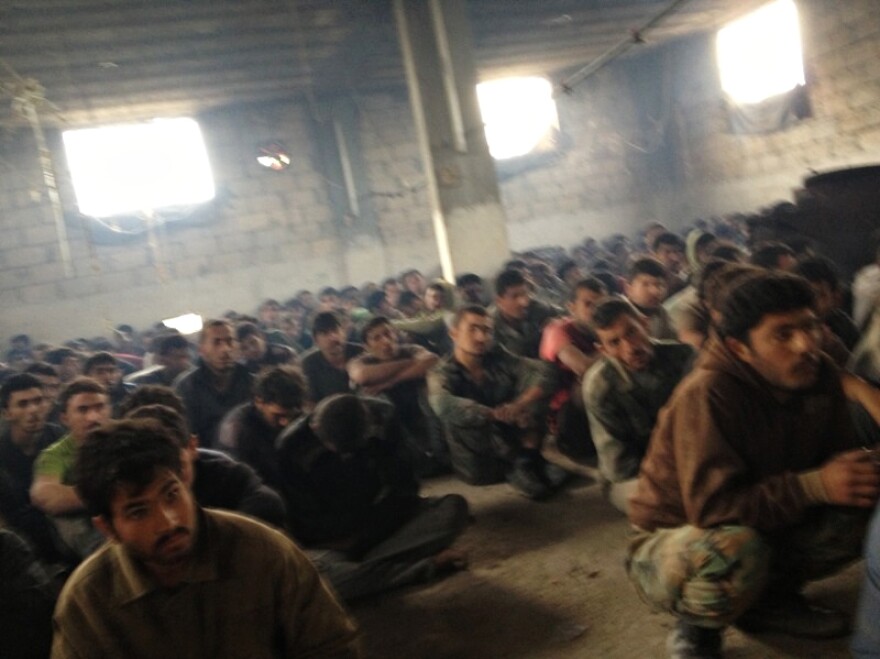The rebels of the Free Syrian Army recently retook the small farming village of Khirbet al-Joz, just across the border from Turkey. Soon after, Syrian men who had been in Turkish refugee camps returned to the village to see what had happened to their homes.
Activists from a group called the Syrian Emergency Task Force also visited Khirbet al-Joz and filmed video of villagers as they toured the charred ruins.
One man points to a hole in the wall: "Look, this is where the rocket entered. These are Bashar's reforms," he says, referring to Syrian President Bashar Assad.
A Devastated Village
Syrian-American activist Mouaz Moustafa says it appears as if pro-Assad soldiers set fire to every house they could before leaving and burned much of the farmland around the village for good measure.
"The greatest heartbreak that I saw was when each one of the farmers ... would say, 'Look, these were my olives, look what they've done,' " Moustafa says.

But, he adds, "I think I was more sad than they were. They had hope, and they were so excited that their village was back, and they said, 'We're going to rebuild, we're going to fix everything,' and to have civilian leadership."
In an interview recorded by the activists, one rebel commander, Hazem Kintar, said he had to restrain some of his fighters, who wanted to retaliate against the Syrian soldiers they had captured.
Kintar said one of the rebels asked for three prisoners from the minority Alawite community, so he could blow them up at a military checkpoint.
"What kind of religious guy would want to do that?" Kintar asked. "We're treating our prisoners decently."
Moustafa, the activist, says when he heard that the nearly 300 prisoners had been divided into Sunni Muslims in one room and Alawites, Christians and Shiite Muslims in another, he was worried.
"But when they took me to the room with the Alawites and the Shiites and the Christians, they had taken special care of them. They had blankets, they were warm," Moustafa says. "The commander was saying, 'Look, we have to live with these people afterward, and we're not here to pass judgment on anyone.' "
A Plan For Rebuilding
The scenes described by the activists could not be independently verified, although photos and videos appear to back up parts of their story. Moustafa believes Khirbet al-Joz is unlikely to be stormed again by Assad's forces, because it's just too close to the Turkish border.
But the fact that there was fighting raging there just days ago suggests that this is a hope more than a certainty. For now, Moustafa says he is racing to secure money to keep the village afloat.
"Khirbet al-Joz seemed a perfect place to show what post-Assad Syria could be. They did not want a religious scholar to rule them, they wanted a civilian council to rule them," Moustafa says.
"And so it seemed, because of its small population, that maybe through private donations of American citizens — doctors or wealthy businessmen and so on — that we could actually make this a perfect example ... of what could be done," he says.
Eventually, Moustafa says, he hopes to string together a number of villages run by civilian councils. Activists say the Turkish government has provided some food for Khirbet al-Joz, but at the moment this experiment in carving out a secular, democratic piece of Syria on a burned-out northern hillside is hanging by a thread.
Copyright 2020 NPR. To see more, visit https://www.npr.org.



